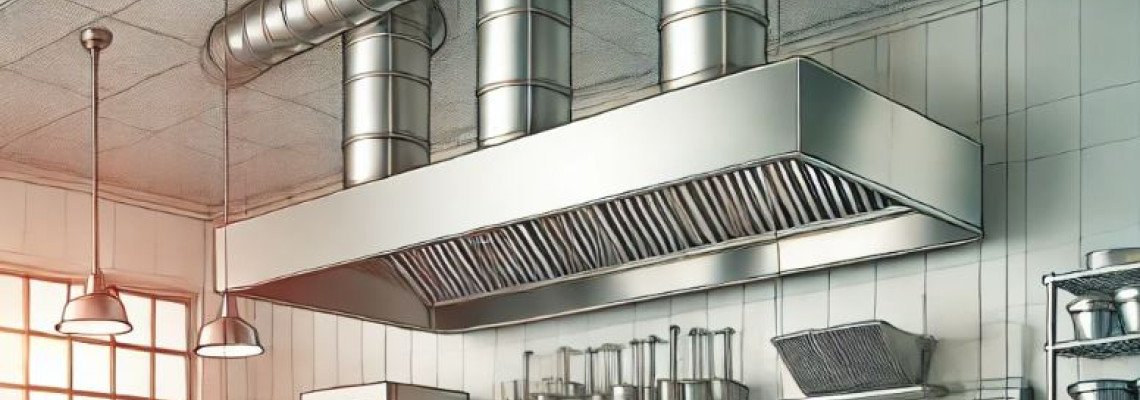
Do Restaurant Kitchens Have to Comply with DW/172?
If you're a restaurant owner, you’ve likely heard of DW/172, the industry standard for kitchen ventilation systems in the UK. But do you need to comply with it? The short answer is: Yes, if your business falls under commercial kitchen operations. Let’s explore what DW/172 is, why it matters, and how adhering to it can benefit your business.
What Is DW/172?
DW/172 is a set of guidelines created by the Building Engineering Services Association (BESA) that outlines best practices for designing and installing commercial kitchen ventilation systems. It ensures proper airflow, extraction, and filtration to manage heat, grease, odors, and airborne contaminants effectively.
Why Compliance Matters
1. Legal and Regulatory Requirements
While DW/172 itself isn’t a law, it is referenced in building regulations, health and safety guidelines, and environmental compliance standards. Adhering to DW/172 helps you meet:
- UK Building Regulations Part F (Ventilation).
- Health & Safety at Work Act 1974.
- Food Safety and Hygiene Regulations 2013.
- Environmental Protection Act 1990 for odor control.
Failure to comply could lead to fines, closures, or reputational damage.
2. Improved Air Quality
Proper ventilation ensures that your kitchen has adequate airflow, reducing heat, smoke, and airborne grease. This creates a safer and more comfortable environment for your staff.
3. Odor Control
By meeting DW/172 standards, your extraction system will efficiently remove cooking odors, ensuring a pleasant atmosphere for your customers and reducing complaints from neighboring businesses or residents.
4. Energy Efficiency
DW/172 emphasizes efficient system design, which can help you reduce energy costs. Systems designed to meet these standards often incorporate features like heat recovery and optimized airflow, lowering your utility bills over time.
Benefits for Your Business
1. Enhanced Customer Experience
Nobody wants to dine in a restaurant that smells like last night’s fish fry. A compliant kitchen ventilation system improves air quality, ensuring your customers enjoy a pleasant dining experience.
2. Staff Well-being and Retention
A cooler, cleaner kitchen creates a better working environment for your team, which can boost morale, reduce absenteeism, and improve staff retention.
3. Simplified Inspections
Health and safety or environmental inspections can be stressful. With a DW/172-compliant system, you’re more likely to pass inspections without costly surprises.
4. Future-proofing Your Business
As environmental standards become stricter, having a compliant ventilation system will make it easier to adapt to future regulations, protecting your business from costly retrofits.
What Does Compliance Involve?
1. Proper Canopy Design
Canopies must cover all cooking equipment and provide sufficient airflow to capture grease, smoke, and steam. DW/172 provides detailed specifications for canopy size, placement, and performance.
2. Ductwork Standards
Your ductwork must handle high temperatures and grease build-up safely, reducing fire risk. DW/172 outlines best practices for material choice, construction, and maintenance.
3. Filtration and Odor Control
Filters must efficiently capture grease and particles while managing odors. Activated carbon filters or similar technologies are often recommended.
4. Airflow Rates
DW/172 defines minimum airflow rates to ensure effective ventilation without wasting energy. Balancing supply and extraction air is crucial.
How to Get Started
1. Audit Your Current System
Have a professional assess whether your kitchen’s ventilation meets DW/172 standards. This will help identify areas for improvement.
2. Work with Experts
Choose a trusted supplier or installer with experience in DW/172-compliant systems. They can design and install solutions tailored to your kitchen layout and needs.
3. Schedule Regular Maintenance
Even a compliant system requires regular cleaning and maintenance to perform effectively and avoid fire risks.
Conclusion
Complying with DW/172 isn’t just about ticking a box—it’s about creating a safer, healthier, and more enjoyable environment for your staff and customers. It also protects your business from legal risks, improves energy efficiency, and enhances your reputation. Investing in a compliant ventilation system is an investment in the success and longevity of your restaurant.
If you’re unsure whether your kitchen meets DW/172 standards, contact us today for a consultation. We’ll guide you through the process of achieving compliance and reaping the benefits for your business.
